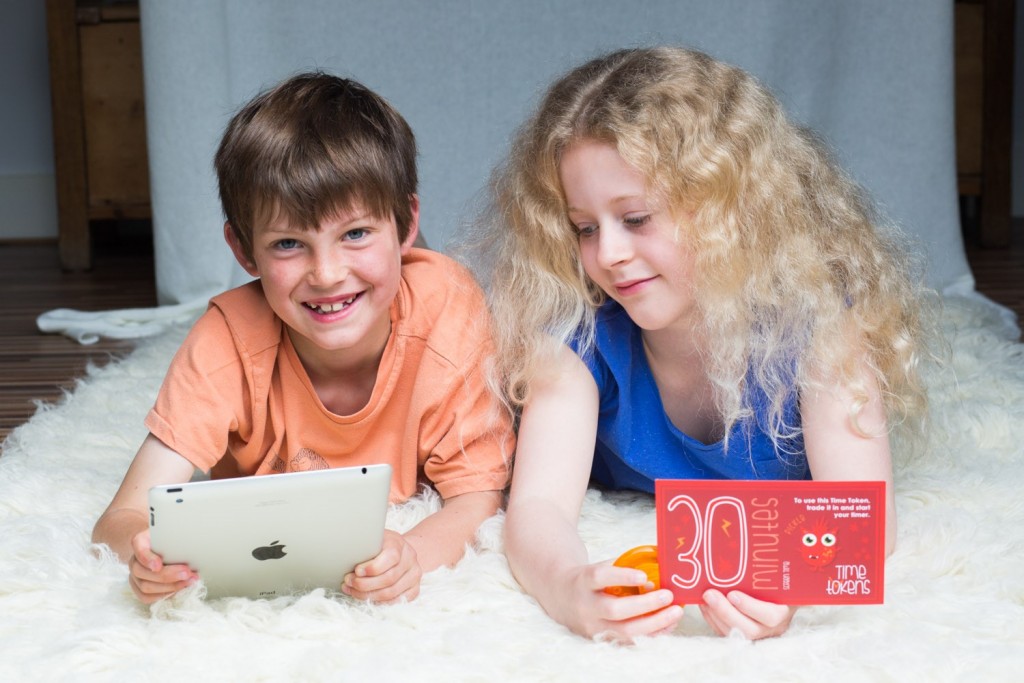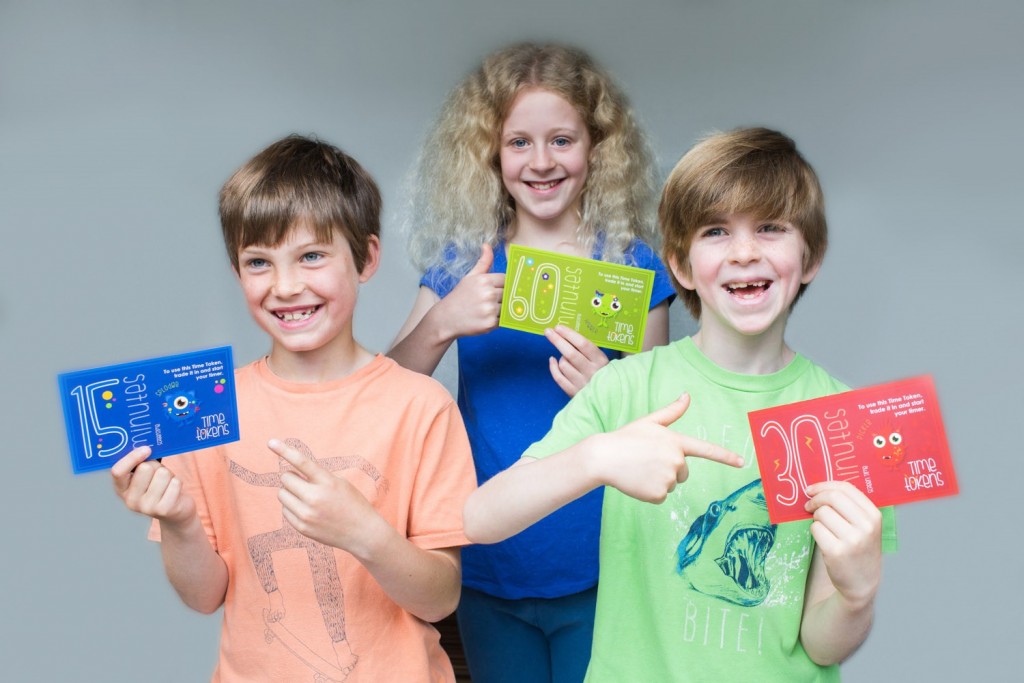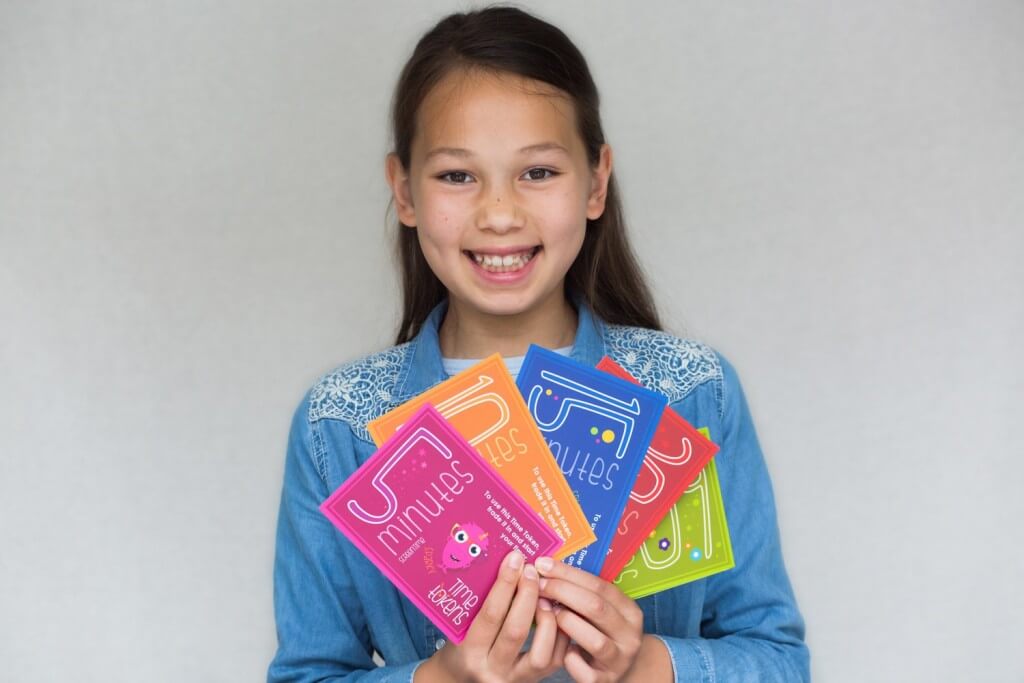We’ve heard that TimeTokens is fast becoming go-to product for mums-in-the-know. Kirstie Allsopp has tweeted about its “genius”, Angels & Urchins rave about “the lack of screentime battles” and The Telegraph think its “great for under 9’s”. This simple but effective product is the creation of Mum of 2, Amanda Bucknall and her 8 year old son, Harry.
Amanda says “I don’t hate TV, I don’t even hate computer games, but I did hate the effect screentime had on my son Harry who was 7. I found it impossible to keep track of the time he spent watching TV or playing on the i-pad. When I tried to get him away from the screen he would erupt with temper tantrums and meltdowns. The screentime battle would begin!”
“However much I tried to reason with Harry, screen time would always end in a huge argument.”
The final straw came on a miserable, wet half-term break last year when over the course of the week, Harry dissolved into a zombie like state. It was only towards the end of the week that Amanda realised that he had completely OD’d on screentime. She was horrified at the impact so much technology was having on him.
Unable to find a product to help, Amanda and Harry decided to invent their very own – TimeTokens was born!
The Childwise Agency who carry out an annual survey on children’s media habits in the UK have described a “landmark change” with children now spending more time on-line than watching traditional TV’s. Even though the first i-pad was only released just over 5 years ago (in 2010), experts predict that by the time we get to Boxing Day this year over 75% of homes in the UK will own a tablet! That’s in addition to the smartphones, computers, tvs …
Excessive time watching and playing on screens can have a negative effect on young children as they are often missing out on activities fundamental to their physical, social, intellectual, and emotional development.
It’s important to remember, however, that video and computer games aren’t all bad. Quality games give children the opportunity to practice problem solving and logic skills. They increase fine motor and coordination skills and foster an interest in information technology.
Amanda has shared some of the tips she has found most useful on her TimeTokens journey:-
It’s very difficult to get official guidelines for how much screentime children be allowed at different ages, but Amanda uses this as a rough guideline.
3-7 year olds – half an hour to an hour a day
7-12 year olds – 1 hour a day
12-15 years old – 1 and a half hours a day
16+ – 2 hours a day

Experts recommend children aged 2-5 years have no more than an hour and children aged 5-18 no more than 2 hours
- Digital conversation is important so talk to your child about internet safety.
- Try to keep devices in a family space. This way you can easily monitor what your child is looking at.
- Talk to your child about their screentime usage – what is their favourite app? What do they like doing and why?
- Avoid screens during meal times. Enjoy each others company, chat about your day.
- Children’s brains need time to switch off so turn screens off at least 30 minutes before bedtime and keep bedrooms a screen free zone.
- Try to make sure your child takes regular breaks in their screentime sessions and keeps a good posture.
- Children model their behaviour on what they see around them so be mindful about your own digital habits – checking your phone at the dinner table!
- However, you can always justify your screentime because parents’ brains and bodies are fully formed and not developing. Screentime does not have the same negative effects.
TimeTokens are available to buy from £14.95.





